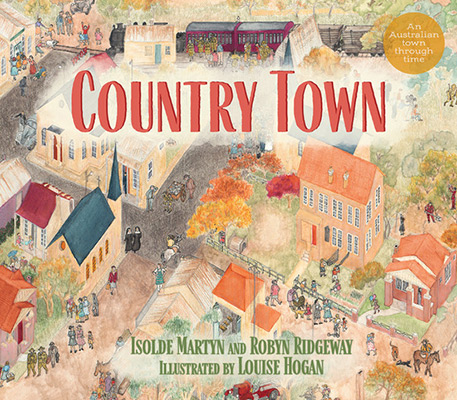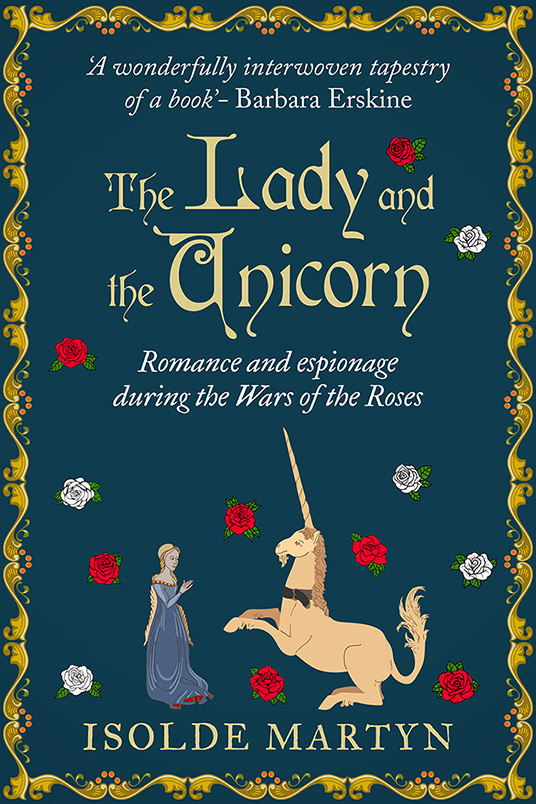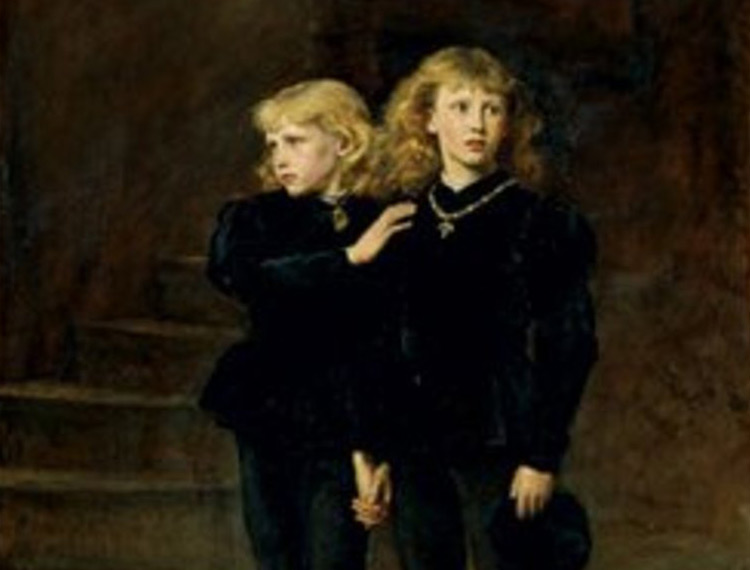The Richard III Society (NSW Branch) have invited Isolde to do an international Zoom chat about her Wars of the Roses novels: Mistress to the Crown and The Golden Widows.
Date: 15 June 2024
Times: 7-9pm Sydney EST
10 am – noon UK GMT
If any readers would like to book in for this, please contact the NSW Richard III Society at richard3nswpublications@gmail.com
Country Town
The Lady and the Unicorn – Sapere Books
No one knows the identity of the woman spy that King Edward IV sent across to Calais with messages for his brother, the Duke of Clarence, begging him to change sides. The Lady of Calais had to be someone who could easily have access to the duke. This implies she was possibly of noble birth or maybe had a family connection. The ideal candidate was Margaret, the Earl of Warwick’s bastard daughter, since she was half-sister to the duke’s wife, Isabella, and may have been brought up as a companion to her and her sister Anne. We do know that Margaret was later one of the ladies attending at the coronation of Anne and Richard III. Margaret also may have been the mysterious relative of Warwick’s that King Edward was rumoured to have seduced. She would have been the right age and less of a ‘no go area’ than the earl’s legitimate daughters. So there you have the heroine of my novel, and the hero — well, the man she married — Richard Huddleston. In truth, he may have been a lot older than her. I don’t know. But he became the other main character.
I do hope you will find the story of Margaret and Richard and the political intrigue surrounding them a good read.
This story was also published in the USA as The Maiden and the Unicorn. It is also available in German at Dotbooks as Der Stolz der Lady
The Lost Princes
How refreshing to hear about some new historical documents that have come to light concerning the fate of the Princes in the Tower. Philippa Langley has done it again, pioneered a fresh path through the shadows. She has achieved this by recruiting a team of researchers to comb the European archives and by taking a very forensic approach to the investigation.
I’ve now had to change my mind about what happened to Edward V. I was wondering if as a teenager he had actually become so depressed and desperate in the Tower that he committed suicide. One account (Mancini quoting the boy’s physician, Dr Argentine) says that Prince Edward sought remission of his sins and was convinced he was going to die (presumably because most deposed kings were murdered?) and another theory is that he was suffering from a very painful jaw. Added to that, he was incarcerated with a younger brother who he hardly knew, since from the age of three he had spent most of his life iin his own household at Ludlow rather than with his parents. Prince Richard was only nine. To add to Prince Edward’s poor state of mind, his mentor, the man who had supervised his education, Lord Rivers, his maternal uncle, had been executed. All this could have prompted the lad to take his own life. Of course, he would have believed that to take your own life would be against the will of God, but committing that act would certainly mean that the common people would regard Richard III and Henry, Duke of Buckingham as child murderers.
OK, all that was just a theory and, yes, I’ve abandoned it gladly. The documents that have now come to light are very convincing so if you are interested in the mystery of the Princes, do read Phiippa Langley’s book The Lost Princes or watch her recent doumentary. It is utterly fascinating



